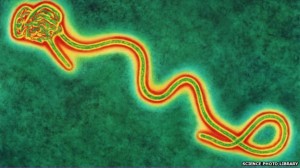
By Becky John
The Lagos State Government on Thursday advised the public to maintain adequate personal and environmental hygiene to prevent relapse of the Ebola Virus Disease (EVD). Dr Modele Osunkiyesi, the Permanent Secretary, State Ministry of Health, gave the advice in a statement in Lagos. Osunkiyesi said that this became imperative in view of reported cases of the resurgence of EVD in some neighboring West African countries like Liberia and Sierra Leone.
She said that the state government, in collaboration with the Federal Ministry of Health and other stakeholders, were maintaining relevant surveillance through the Port Health Services and community surveillance activities in all local government areas. She said that the state government had started outlining strategies to prevent the re-entry of the disease after being certified free of Ebola on Oct. 20, 2014, by the World Health Organization.
According to her, prevention of Ebola is a shared responsibility by all citizens.
“Although, there has not been any reported case of EVD in the state or the country, there is need for residents to take responsibility for their health.
“Observe the highest possible standards of personal and environmental hygiene through regular washing of hands with soap and running water.
“Avoiding close contact with people who are sick, ensuring that objects used by the sick are decontaminated and properly disposed and avoid touching or washing of dead bodies if not trained to do so,” she said.
“Although, there has not been any reported case of EVD in the state or the country, there is need for residents to take responsibility for their health.
“Observe the highest possible standards of personal and environmental hygiene through regular washing of hands with soap and running water.
“Avoiding close contact with people who are sick, ensuring that objects used by the sick are decontaminated and properly disposed and avoid touching or washing of dead bodies if not trained to do so,” she said.
Osunkiyesi said that EVD could be spread through close contact with the blood, body fluids, organs and tissues of infected animals. She said that EVD could also spread through direct contact with the blood, body fluids and tissues of infected persons as well as handling sick or dead infected animals like monkeys and bats.
“Early symptoms of EVD include fever, headache, chills, diarrhoea, nausea, vomiting, sore throat, backache and arthritis, while later symptoms include bleeding from the eyes, ears, nose, mouth and rectum.
“Also, swelling of the eyes, genitals and rashes all over the body that often contains blood. It could progress to coma, shock and death,” she said.
Osunkiyesi said that there was no specific treatment for EVD, but infected persons would be admitted into the hospital for specialised care and treated in isolation.
“There is need to be vigilant and ensure adequate hygiene. Lagosians are advised to remain calm as the government remains committed to protecting your health.
“Health workers are also enjoined to keep observing the universal safety precautions when dealing with patients,” Osunkiyesi advised.
“Also, swelling of the eyes, genitals and rashes all over the body that often contains blood. It could progress to coma, shock and death,” she said.
Osunkiyesi said that there was no specific treatment for EVD, but infected persons would be admitted into the hospital for specialised care and treated in isolation.
“There is need to be vigilant and ensure adequate hygiene. Lagosians are advised to remain calm as the government remains committed to protecting your health.
“Health workers are also enjoined to keep observing the universal safety precautions when dealing with patients,” Osunkiyesi advised.
Culled from Health Reporters

No comments:
Post a Comment